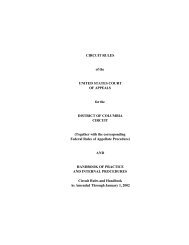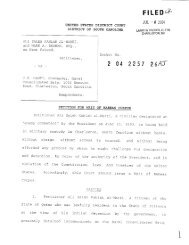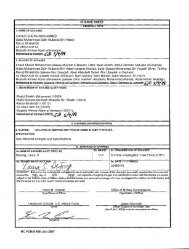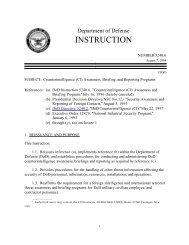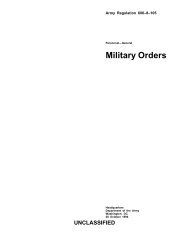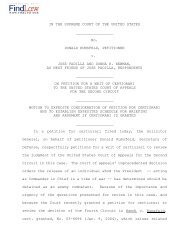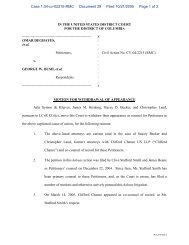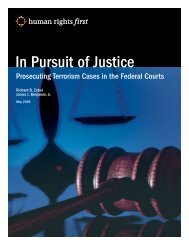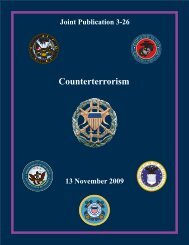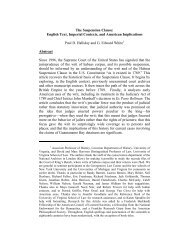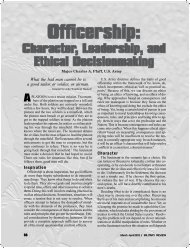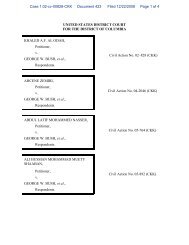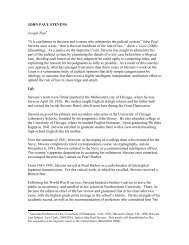Government Merits Brief - Hamdan v. Rumsfeld
Government Merits Brief - Hamdan v. Rumsfeld
Government Merits Brief - Hamdan v. Rumsfeld
Create successful ePaper yourself
Turn your PDF publications into a flip-book with our unique Google optimized e-Paper software.
47<br />
(3d ed. 1914); see Richard S. Hartigan, Lieber’s Code and the<br />
Law of War 47-48 (1983). The Quirin precedent illustrates<br />
these points. See Louis Fisher, Congressional Research Service,<br />
Military Tribunals: The Quirin Precedent 8 (Mar. 26,<br />
2002) (Quirin<br />
commission “adopted a three-and-a-half page” statement of<br />
rules with language providing that “[t]he commission could<br />
* * * discard procedures from the Articles of War or the<br />
Manual for Courts-Martial whenever it wanted to.”).<br />
Congress enacted the UCMJ against the backdrop of this<br />
historical practice and understanding regarding the commonlaw<br />
role of the military commission. See Uniform Code of<br />
Military Justice: Hearings Before the Subcomm. No. 1 of the<br />
House Comm. on Armed Services on H.R. 2498, 81st Cong.,<br />
1st Sess. 1017 (1949) (statement of Robert Smart, Professional<br />
Staff Member of Subcommittee) (“We are not prescribing<br />
rules of procedure for military commissions here. This<br />
only pertains to courts martial.”). The UCMJ predominantly<br />
addresses only courts-martial, with an eye toward providing<br />
a particular form of process to members of the United States<br />
armed forces. It would defeat the plain language, structure,<br />
and history of the UCMJ to read into the numerous provisions<br />
that on their face regulate only courts-martial an intent to<br />
regulate, much less all but eliminate, military commissions. 22<br />
22 Petitioner further contends (Br. 21 n.12) that the military commission’s<br />
rule permitting the admission of evidence if it has “probative value to a<br />
reasonable person” conflicts with Article 36(a) of the UCMJ, 10 U.S.C. 836(a),<br />
because that article embraces the Federal Rules of Evidence. But Article 36(a)<br />
expressly authorizes the President to depart from those rules if “he considers”<br />
their application not “practicable.” Pursuant to that authority, the President<br />
has made a finding that “it is not practicable to apply in military commissions”<br />
the Federal Rules of Evidence because of “the danger to the safety of the<br />
United States and the nature of international terrorism.” Military Order § 1(f).<br />
In addition, the military commission’s evidentiary standard is the same one<br />
commonly used by international tribunals. See, e.g., ICTY R.P. & Evid. 89(C).



